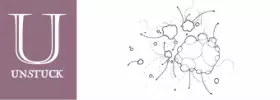“Someone must have been telling lies about Josef K.; he knew he had done nothing wrong but, one morning, he was arrested.”
* * *
A conversation with a close friend about a year ago took an unexpected turn when he began to describe to me his experiences with cancer. His prognosis was one of the best I had heard (stage 2 non-Hodgkin’s lymphoma, 95% survival rate), but his path was still difficult. He'd undergone twelve chemotherapy treatments over a six-month period, and had watched as some people around him lost what we as a society have called a battle. In a strange way, though, his journey was not over and will never be over. Remission is a strange thing, and the cancer could return. This possibility reminded me of The Trial by Franz Kafka.
In The Trial, the protagonist Josef K. traverses a legal world that is surreal and fantastic. The landscape that K. moves through is often cited as being darkly satirical of either bureaucratic systems or religious dogma. But what if the world that Kafka suggests is also prophetic of a trial that many people experience today?
In one of the more complicated sections of the book, K. is talking to a portraitist of the court. This artist knows the court better than anyone else K. has spoken to and tells K. that there are three types of acquittal that he can seek. The first option, "absolute acquittal," is dismissed as an option, because nothing the painter could do would assist K. in getting proclaimed innocent. The second option is "apparent acquittal," which can be given by a simple letter from the painter. However, this letter is a temporary solution, because the painter can only influence junior judges who have no ability to grant a full acquittal. What does that mean? K. could be arrested again at any time, even when he is leaving the courthouse. The third option, "deferment," is merely dragging out the proceedings indefinitely.
“Apparent acquittal” and “deferment” sound a lot like what modern cancer patients go through. When I shared this with my friend, he was surprised at the similarities between his own experiences and K.’s. The fact that he undergoes tests every six months to make sure that the cancer has not returned, and will need to see a doctor each year for the rest of his life after five years have passed, is much like K.’s possibility of coming under arrest again. Deferment reminded me of other illnesses—the ones we have no cure for, but whose symptoms can be treated. Absolute acquittal, the ultimate proclamation of innocence, is not the purview of modern medicine. The painter is much like a doctor, explaining to K. the number of years he could have and of what quality.
This reflection on reality is one of the great strengths of literature of the fantastic. In strange and uncanny ways these fictional narratives can change the way that we see the world. Medical journeys are difficult and laden with unexpected obstacles. My own friend’s experience with survivor’s guilt and the pain of going through chemotherapy shows just how much life can change in the blink of an eye. Perhaps the surreal can provide a way for the ill to make sense of their own trials.
* * *
A translation of The Trial is available at Project Gutenburg.


 RSS Feed
RSS Feed